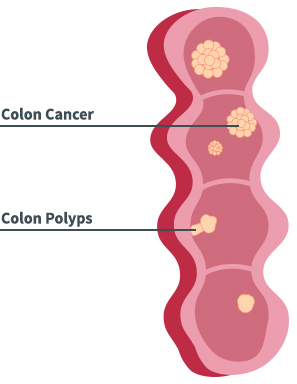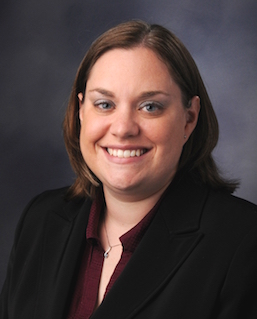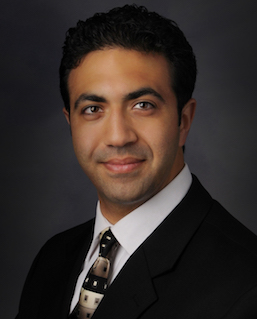About The Condition
 The colon is a portion of your large intestine measuring about five feet long. Its function as part of your digestive system is to remove water and salt from the solid wastes before they are eliminated. The colon has four parts: the ascending colon, the transverse colon, the descending colon and the sigmoid colon. There are several types of colon disease, including:
The colon is a portion of your large intestine measuring about five feet long. Its function as part of your digestive system is to remove water and salt from the solid wastes before they are eliminated. The colon has four parts: the ascending colon, the transverse colon, the descending colon and the sigmoid colon. There are several types of colon disease, including:
Appendix Cancer. Appendix cancer is a very rare cancer affecting the appendix, a part of your digestive system located approximately where the large and small intestines meet. Appendix cancer is often found when imaging is done for another condition or if you have your appendix removed because of appendicitis. There are two main types of appendiceal cancers: carcinoids and adenocarcinomas. Most carcinoids can be treated with an appendectomy alone, but some carcinoids and most adenocarcinomas require surgical removal of a portion of the colon, as well.
Colon Cancer. Colon cancer is the third most common cancer for men and women. It refers to malignant cells in the first part of the large intestine, the colon. Colon cancer often begins with polyps, cells that grow abnormally in the colon, which are easy to detect and remove with a colonoscopy when they are small. There are three main types of colon cancer.
- Adenocarcinomas begin in cells that form glands to lubricate the inside of the colon.
- Carcinoid tumors begin in hormone-producing cells.
- Gastrointestinal stromal tumors (GIST) begin in the wall of the colon.
Colon Polyps. Colon polyps are groupings of cells that come together in the lining of the colon. Most are harmless (not cancer) and can be removed painlessly during a routine colonoscopy. If they are allowed to grow, some can turn into cancer. If your surgeon is unable to remove the polyp through a colonoscopy, the polyp must be removed surgically.
Before Surgery
If your condition involves cancer, you may have radiation or chemotherapy prior to your surgery to reduce the size of your tumor. Please ask your physician about these treatments. In addition, or for other surgeries, you may be asked to:
- Stop smoking for one month prior to your surgery. Nicotine decreases blood flow, prevents healing after surgery and increases your risk of infection.
- Increase your activity. Aim for 30 minutes of walking or other aerobic activity daily to build strength.
- Improve your nutrition. Add protein supplements such as Boost or Ensure to help your body heal after surgery.
Please ask your physician about any additional steps you should take before your surgery, such as colon prep. Read the colon preparation guide here.
Surgery
Our surgeons perform open surgery, as well as minimally invasive surgeries, for colon disease, including cancer. Your surgeon will explain your particular procedure in more detail.
Minimally invasive surgery. Minimally invasive surgery is performed with laparoscopy or robot-assisted surgery using the da Vinci Surgical System.
- Laparoscopic surgery. Laparoscopic surgery requires only a few small incisions into which your surgeon will fit long, thin surgical instruments and a tiny camera. The camera will provide images to guide the surgeon during the procedure.
- Robotic surgery. Some laparoscopic surgeries may be performed using the da Vinci Surgical System. This robotic option gives your surgeon a magnified 3D high-definition view inside your body. The system also enables the surgeon’s hand movements to be translated into precise movements of small instruments inside your body.
Open surgery. Minimally With open surgery, your physician will make an incision at the site of the abnormality large enough so he or she can see and touch your internal organs while operating.
After Surgery
- You will be encouraged to walk to prevent blood clots, muscle weakness and constipation.
- You may not be hungry at first, so return to a normal diet slowly. Check with your physician about using supplements if your appetite is poor.
- You may experience constipation. If so, you may take a laxative such as Miralax or Milk of Magnesia.
- Ice may help to reduce the swelling for the first 48 to 96 hours. Then use heat to ease muscle soreness and relax tight muscles.
- You may use ibuprofen in addition to prescription pain medication to help with pain control.
- A small amount of bleeding or drainage is expected from the wound during the first one or two days.
- You may shower one or two days after surgery, but avoid baths, hot tubs, soaking or swimming for at least two weeks.
- An abdominal binder may be helpful in providing support to your abdominal wall.
- Always talk to your surgeon about weight restrictions and return-to-work options. There are enhanced recovery programs for colon resections. Please discuss this with your surgeon to learn if you are a candidate.
- You will be asked to see your surgeon in one to three weeks after surgery.
- If you notice a fever greater than 101 degrees Fahrenheit or drainage from your wound, let your surgeon know by calling 763.780.6699.
If you have additional questions, please contact us at 763.780.6699.









